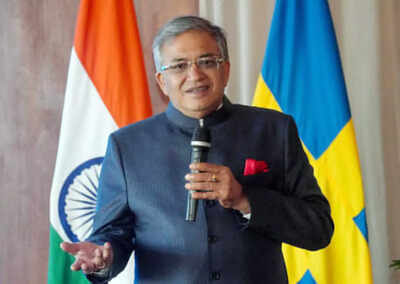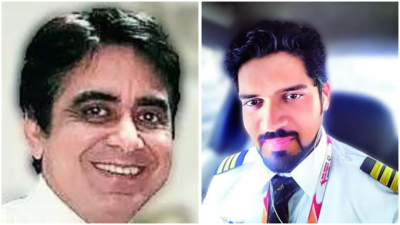Chief election commissioner defends India’s electoral roll transparency at international conference | India News

NEW DELHI: In a first but indirect rejoinder to Rahul Gandhi’s allegations regarding lack of transparency in Maharashtra roll updation, chief election commissioner Gyanesh Kumar underscored the statutory sharing of electoral roll with all recognised political parties year after year since 1960, with a provision for them to make claims, objections and appeals.Delivering the inaugural address at the International Conference on Electoral Integrity (IDEA) in Stockholm, Sweden, on Tuesday evening, Kumar described the annual roll revision exercise in India as “the world’s most rigorous and transparent”, adding that it reinforces the accuracy and integrity of the electoral process. He noted that “this robust mechanism plays a vital role in upholding electoral credibility across the country, year after year”.Apprising the participants — representing election management bodies (EMBs) of around 50 countries — about the massive scale of Indian elections conducted under the watch of political parties, candidates, observers and the media, the CEC said the poll panel, with over 20 million personnel, including polling staff, police forces and observers, “becomes the world’s largest organisation, surpassing the combined workforce of several national governments and major global corporations and ensures that India’s nearly one billion electors are freely able to exercise their franchise”.Kumar traced the evolution of Indian elections over the decades, noting how the system has adapted to increasing complexity while staying rooted in constitutional values. “From 173 million electors in 1951–52 to 979 million in 2024, and from just 0.2 million polling stations in the early years to over 1.05 million today, India’s electoral journey has demonstrated both institutional foresight and unmatched scale,” he noted.He added that 743 political parties and 20,271 candidates contested elections conducted across the length and breadth of the country using 6.2 million EVMs, reaffirming the Commission’s capability to conduct elections that are inclusive, efficient, and secure.Reflecting on the inclusive design of Indian elections, Kumar stated that the electoral process serves first- time voters, senior citizens aged 85+, persons with special abilities, third-gender electors, and voters in the most inaccessible regions with equal care and commitment. From polling booths with a single elector to highest altitude stations like Tashigang in Himachal Pradesh, India’s commitment to leaving no voter behind is reiterated as a constitutional principle rather than a logistical challenge, he said.The CEC also held bilateral meetings with his counterparts from Mexico, Indonesia, Mongolia, South Africa, Switzerland, Moldova, Lithuania, Mauritius, Germany, Croatia, Ukraine and the United Kingdom, on the sidelines of the conference. These engagements were focused on voter participation, electoral technology, diaspora voting, and institutional capacity-building.





